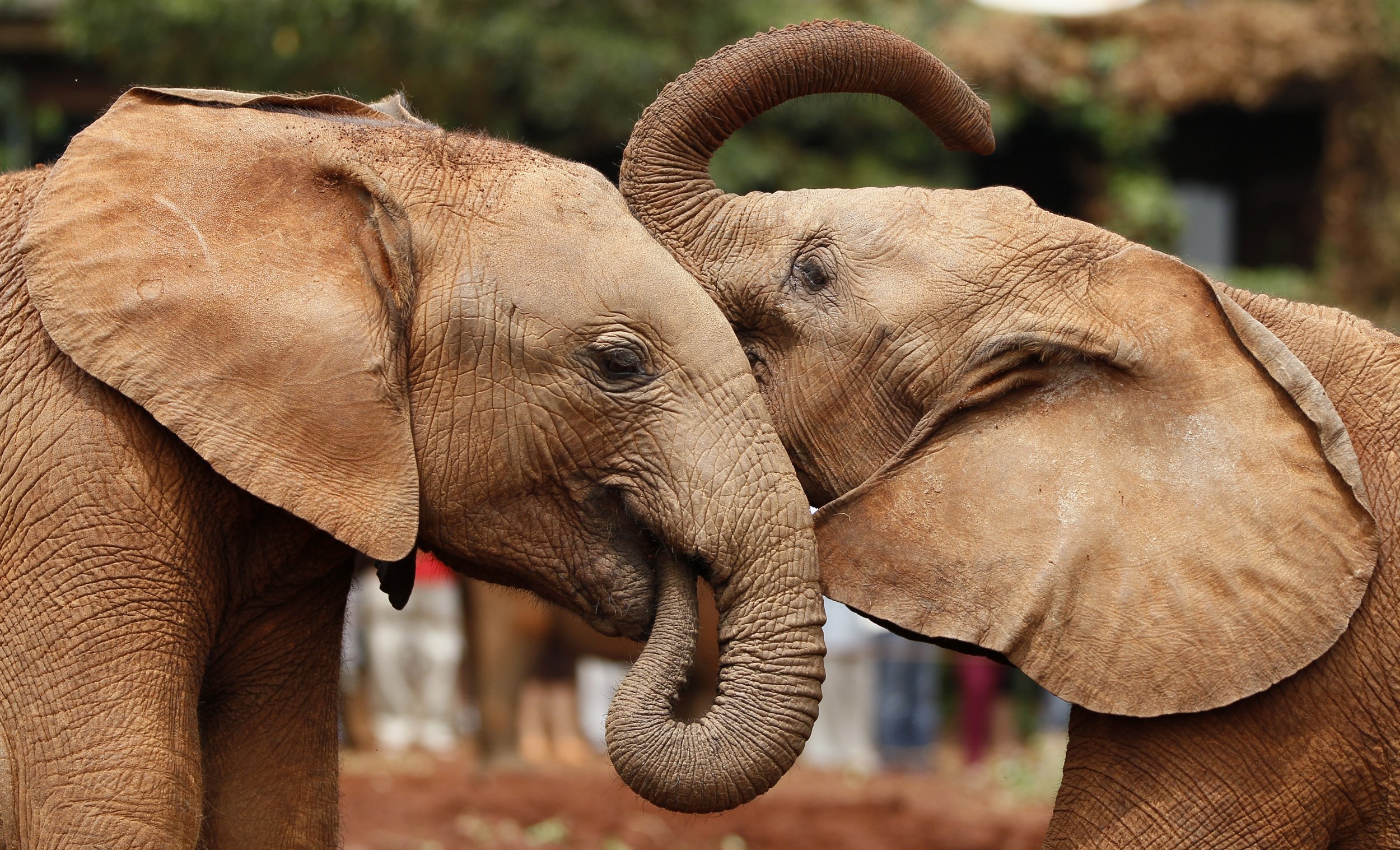
Zimbabwe has allegedly captured dozens of baby elephants from the wild in order to export them to zoos and circuses in China, according to activist group the Zimbabwe Conservation Taskforce (ZCTF).
Around 36 elephants have reportedly been captured by the Zimbabwe Parks and Wildlife Management Authority (ZPWMA) so far according to Johnny Rodrigues, an activist from the ZCTF. He said that the animals were aged between two-and-a-half and five years old - an age which is apparently a time when these social animals are extremely vulnerable.
According to the Times of South Africa, there plans for even more to be captured, with as many as 100 to be shipped to China in the near future.
This procurement, which will see the baby elephants being placed in zoos or safari parks, is to be overseen by Australian Hank Jenkin, a former top official from CITES - an international group which protects wildlife from over-exploitation and sets rules for the global trade in endangered wildlife. Jenkins has now allegedly been recruited as a consultant by wealthy Chinese businessmen and the Chinese government.
Rodrigues says that the trip is likely to be emotionally traumatic and very dangerous for the elephants. "Why is Zimbabwe stealing from the future generation's natural resources?" he wrote in a statement. "The baby elephants quite likely won't survive the trip and the only crime they have committed is being born in Zimbabwe."
Even if they do survive, Chinese zoos and those who visit them have been accused of mistreating animals in the past. Stories include people pelting rubbish at sleeping crocodiles to try and wake them. In 2010, 11 Siberian tigers died at a wildlife park after they were neglected by zookeepers.
Speaking to the Telegraphnewspaper, Zimbabwean officials admitted that they had captured baby elephants, but that these were bound for the the United Arab Emirates (UAE) and not China as reported by the ZCTF, adding confusion to the situation.
The officials defended their actions by saying that the export of live elephants is not illegal. Whilst this is changing in many countries - South Africa made it illegal in 2008 when research revealed the trauma and devastating psychological suffering the elephants experience - China and Zimbabwe are still actively involved in the wild animal trade.
Joyce Poole, co-founder of Kenya-based Elephant Voices charity who has been campaigning against the capture of baby elephants for over a decade, says she is horrified by the elephants' prospects.
"For elephants, being held captive for decades in a circus or in the majority of the world's zoos is gruesome. It's a fate worse than death," she told the National Geographic.
David Coltart, a former Zimabewean minister who is now a senator for the Movement for Democratic Change, the opposition to Mugabe's ruling ZANU-PF, says the move is unsurprising given the nature of Mugabe's rapacious regime.
"[The] government is desperate for foreign exchange and revenue," he told the National Geographic. "Furthermore, we have seen such rampant abuse of our wildlife in the last 14 years that this would be consistent with [what] the ZANU-PF government has done during this period ... There is very little 'wildlife management' left in Zimbabwe. Whilst there are dedicated individuals in national parks, wildlife has been plundered by a predatory regime."
President Robert Mugabe has said more than once that Zimbabwe's wildlife should be used to create profit for the government. Indeed, earlier this year one of his top-ranking officials Masvingo Governor Titus Maluleke went on record saying: "We are not interested in wildlife... we want cash."
Speaking to the National Geographic, Rodrigues said: "Sure, we have a lot of laws and bylaws that pertain to wildlife. But we have a dictator - we've been under his rule for 30 years."
"Zim policies are old," he continued. Wildlife officials "don't listen to scientists, to reason, to people who study these animals. We should bring our laws on par with the world. And we do not."
Johan du Toit, professor of ecology and conservation of large mammals at Utah State University, in Logan, says that the problem in Zimbabwe is corruption.
"I don't think the way wildlife is being managed is indicative of the Zimbabwe ethos," he told National Geographic, "but that the kleptocracy and the elitists within the government see the resources of the country as up for grabs - even to the extent that they think if they don't grab it, someone else will."
He is just one of a number of wildlife experts who say that Zimbabwe's alleged elephant exportation is symbolic of the corruption implicit in the Mugabe's regime.
Uncommon Knowledge
Newsweek is committed to challenging conventional wisdom and finding connections in the search for common ground.
Newsweek is committed to challenging conventional wisdom and finding connections in the search for common ground.
About the writer
To read how Newsweek uses AI as a newsroom tool, Click here.








